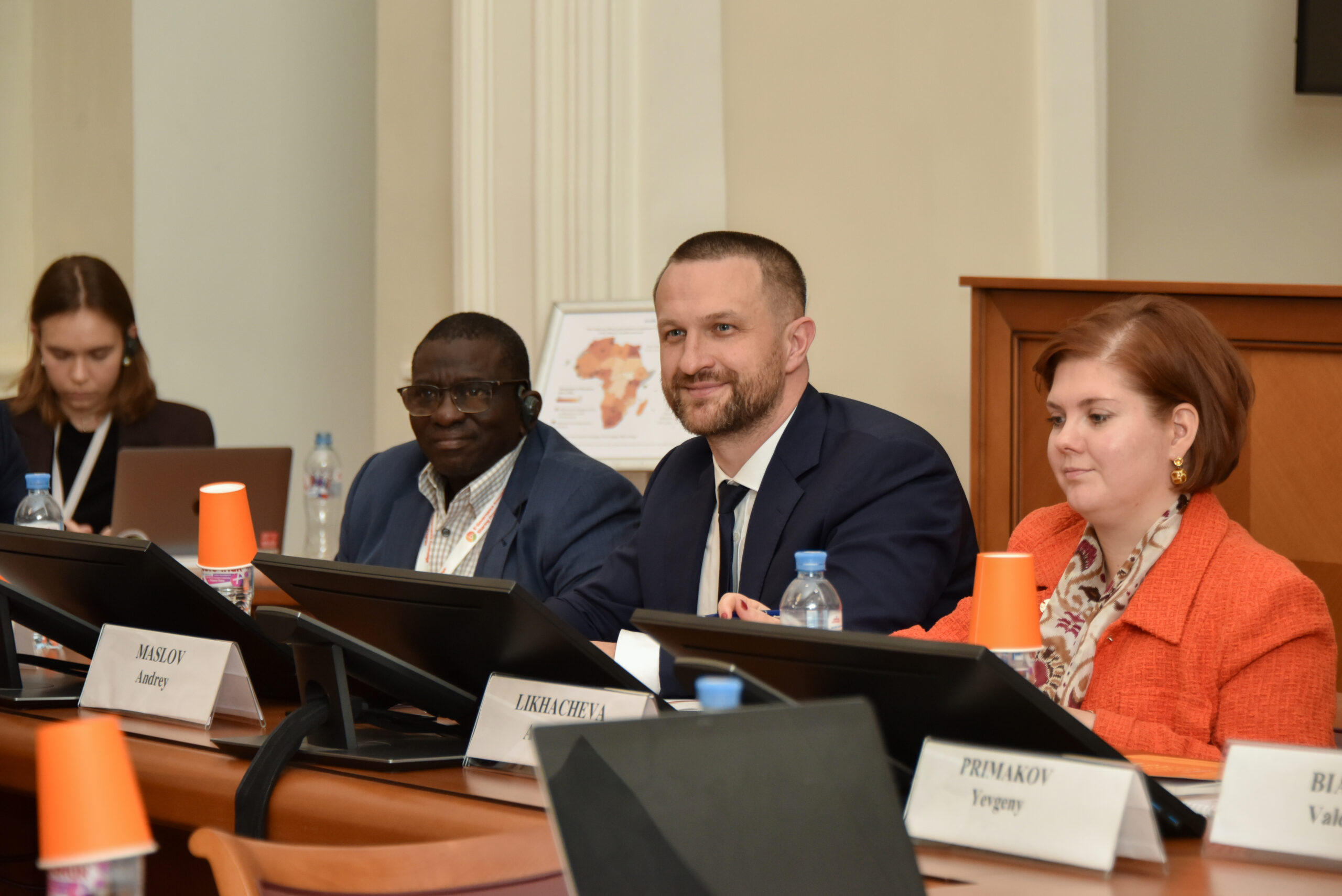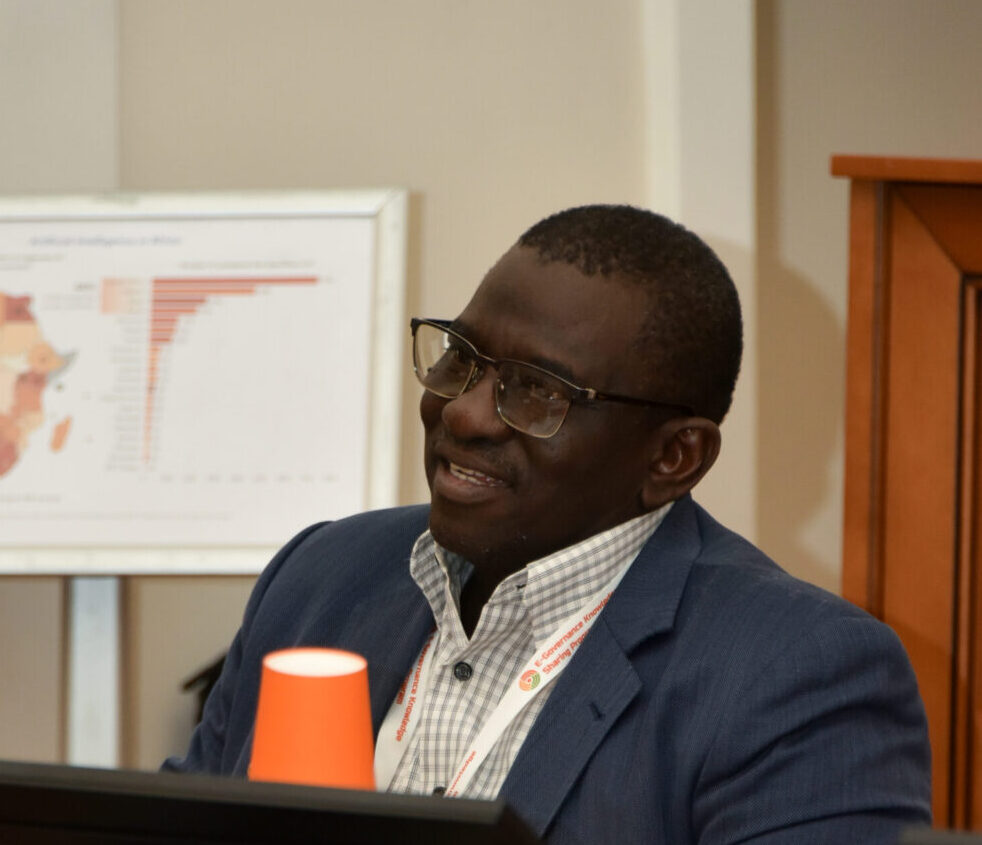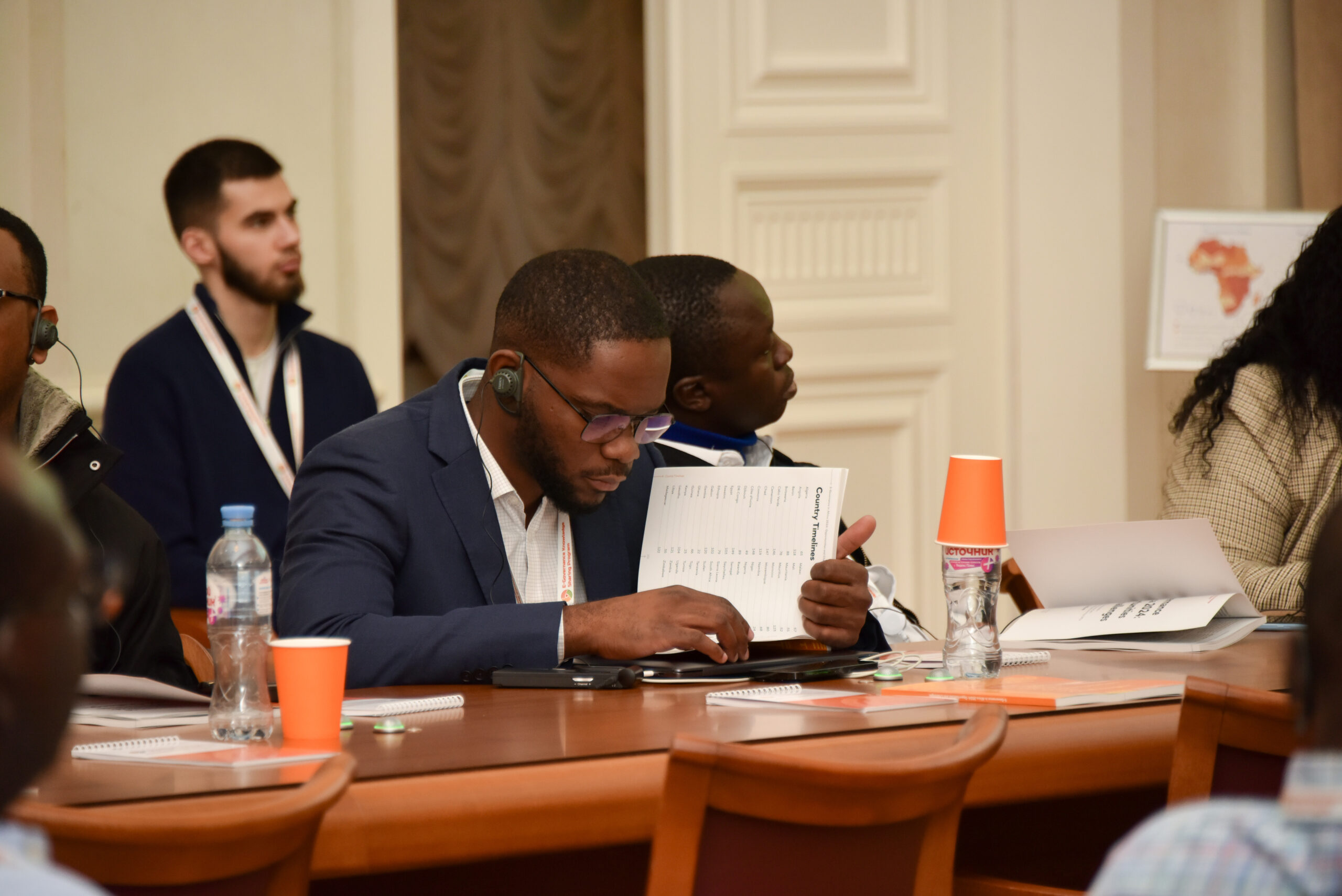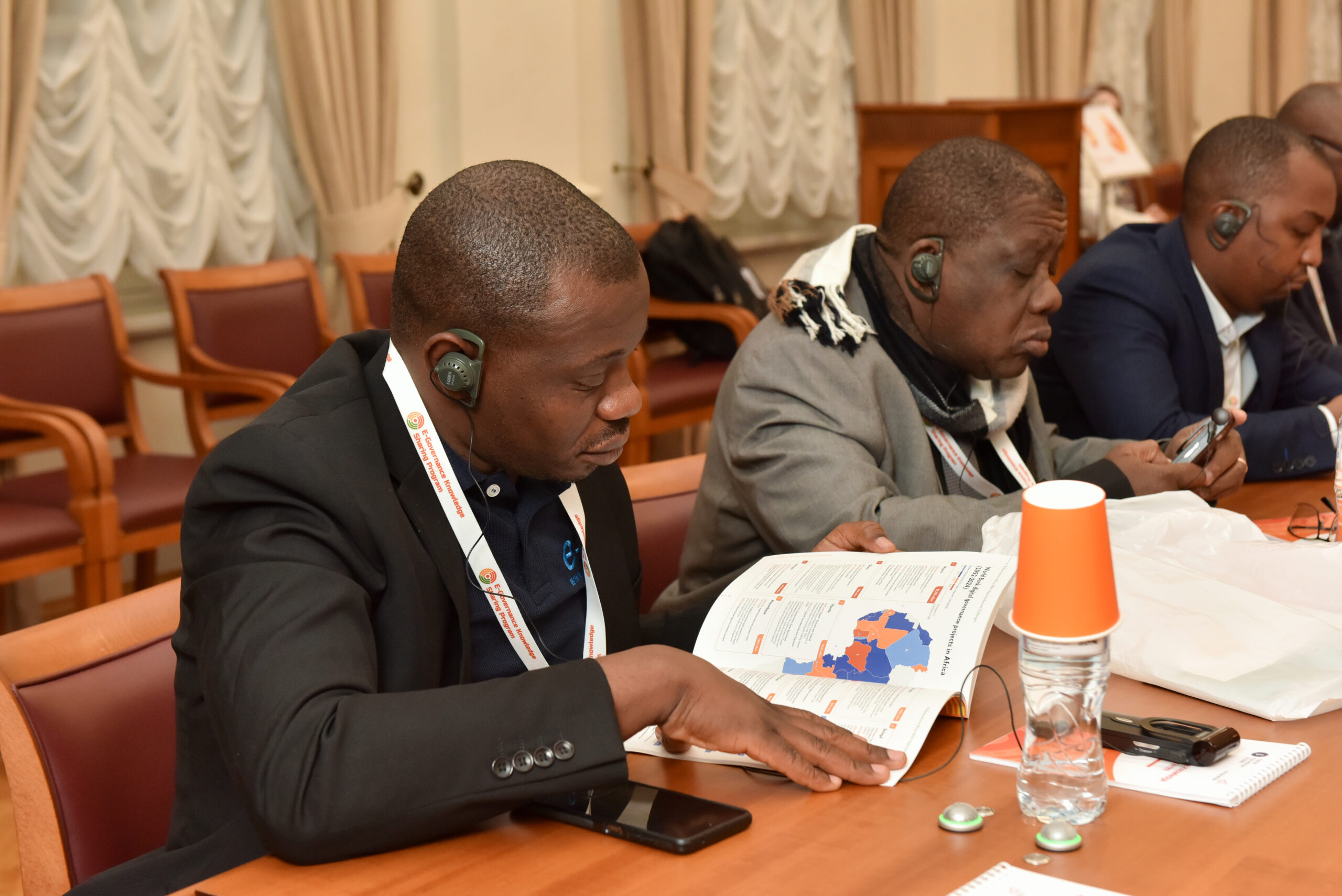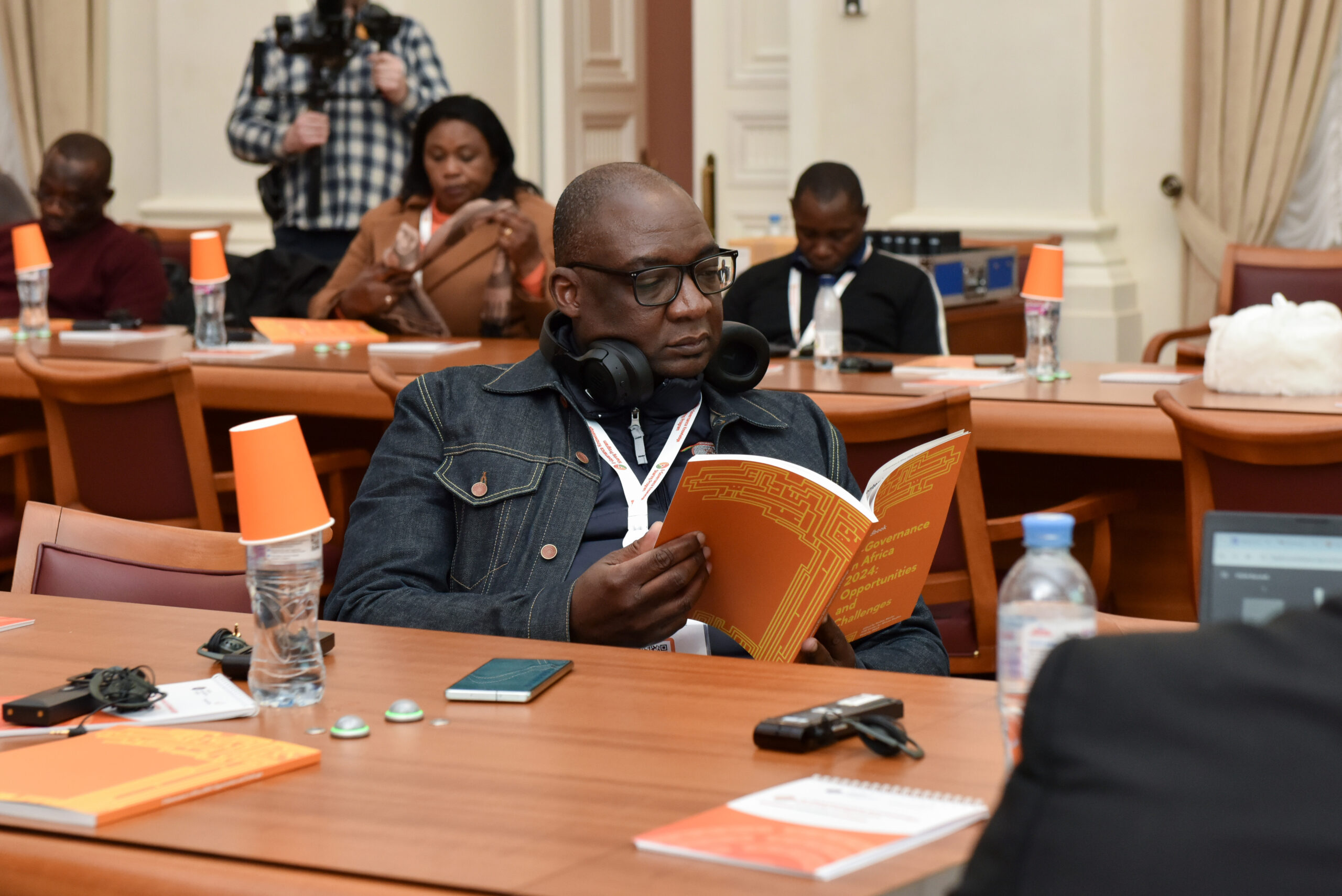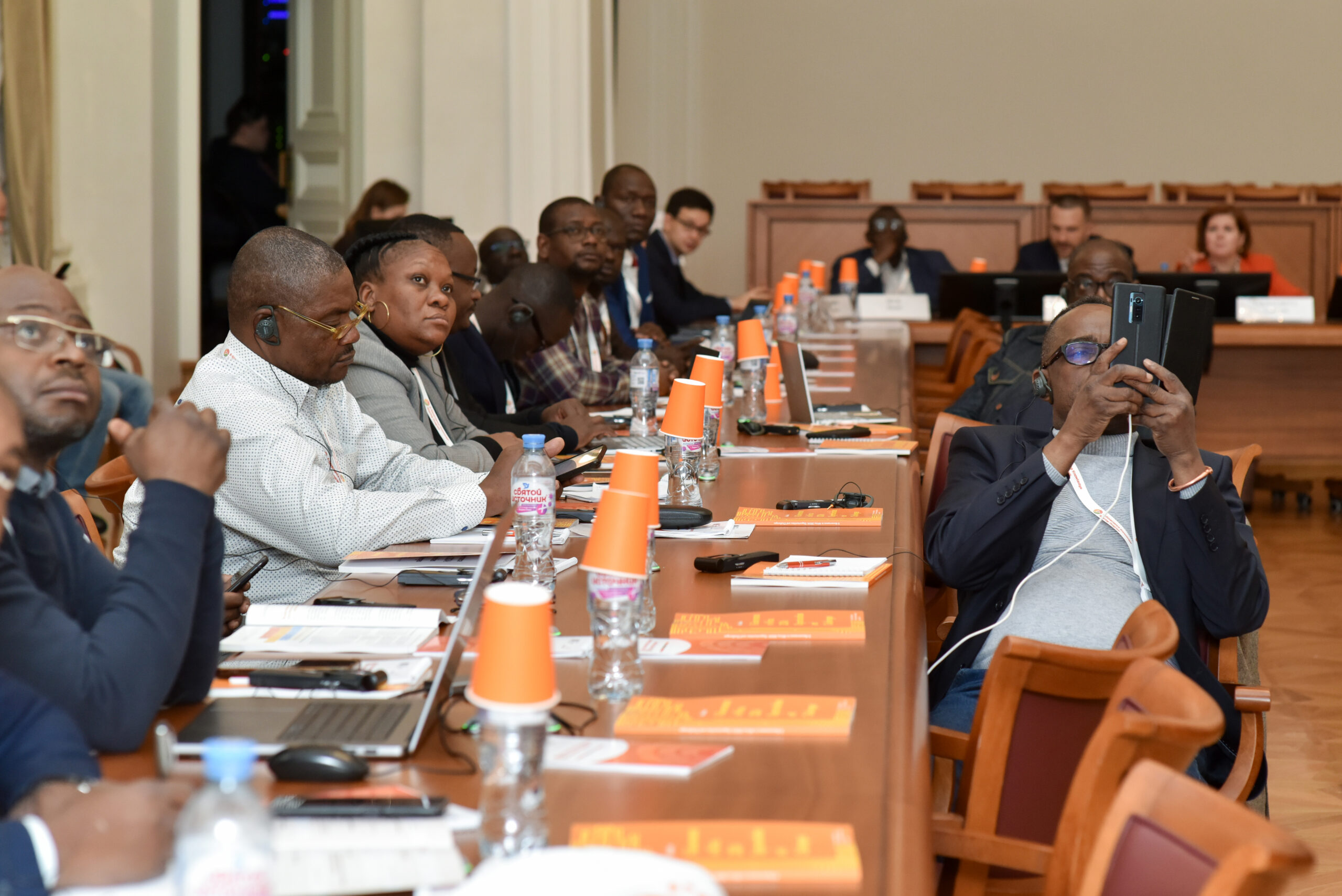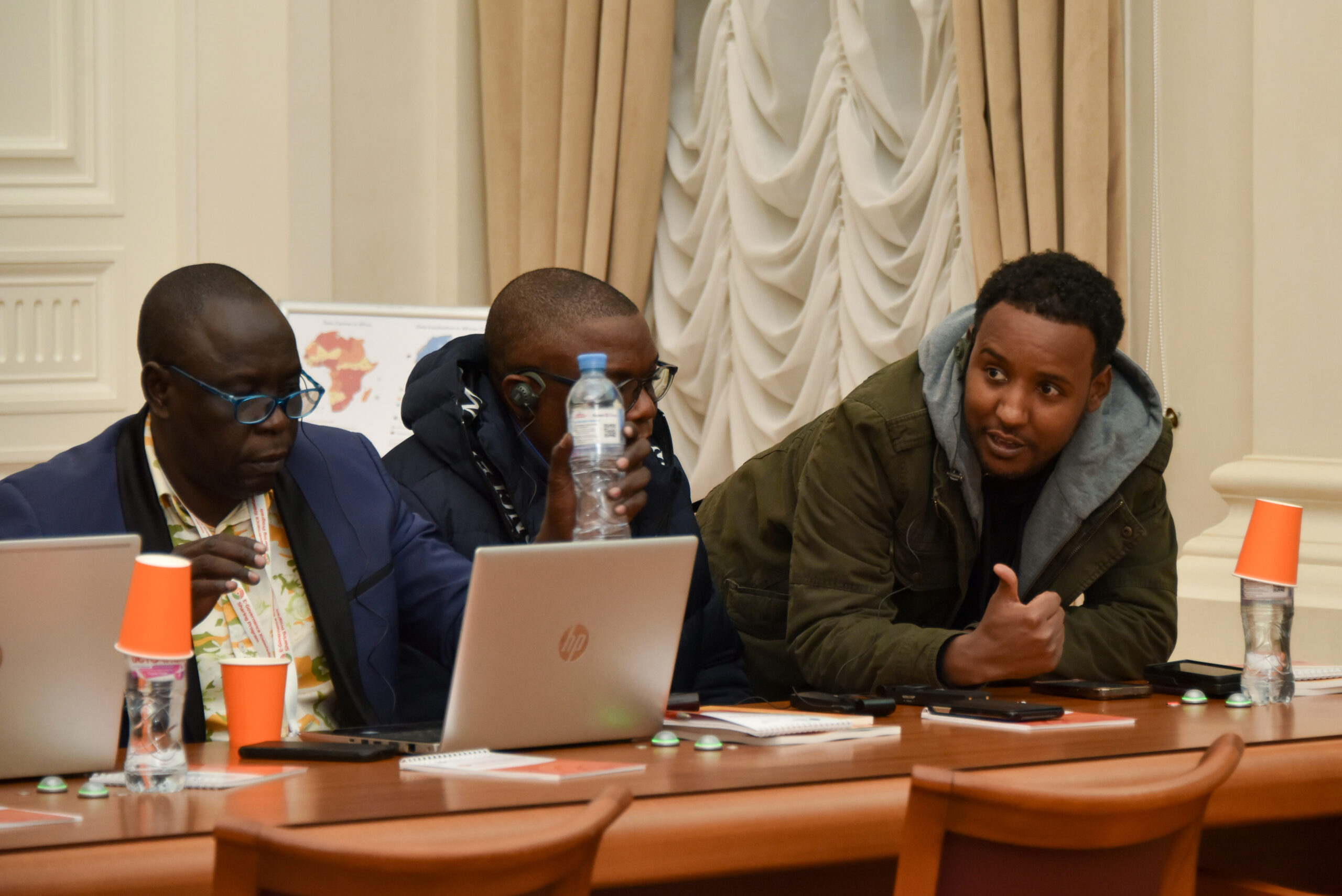Handbook E-Governance in Africa 2024: Opportunities and Challenges presented at the E-Governance Knowledge Sharing Week
21 December 2023
On December 21st, to mark the launch of the first E-Governance Knowledge Sharing Week for Africa, the HSE Center for African Studies presented a handbook E-Governance in Africa 2024: Opportunities and Challenges. The publication was produced by an international team of experts and reviewed by Dr. Moctar Seck, Head of the Innovation and Technology Sector of the UN Economic Commission for Africa (UNECA).
The presentation was moderated by the Dean of the Faculty of World Economy and International Affairs of the HSE University Anastasia Likhacheva.
In his opening speech, Andrey Maslov, Coordinator of the E-Governance Knowledge Sharing Program, Director of the HSE Center for African Studies, presented the Program itself and highlighted that the Knowledge Sharing Week is to identify and specify directions for further development of the Program in partnership with the African counterparts, based on their priorities and demand.
He also mentioned that the Program should serve as a bridge connecting African officials directly with Russian companies such as Kaspersky Lab, Sber, and others, and the team is ready to provide any assistance requested. He presented the website of the Program, the E-Governance Knowledge Hub – with overviews of e-governance development in selected African countries and analytics on key challenges and, more importantly, solutions suggested to address them. The Hub is also expected to integrate basic information on e-governance for the young generation of digitalization professionals in Africa. Mr. Maslov further explained how the personal accounts, soon to be available, will work. They are to store more customized information and presentations for the participants.
He mentioned that the handbook serves as a snapshot of e-governance in Africa and materials from the Hub and invited African counterparts to contribute and to verify the information provided on their countries both on the website and in the handbook.
“It is very important for us to have as much data from Africa on the Hub as possible. So that it is an African Hub, tailored specifically for Africa. Not Russian for Africa, but rather African for Africa,” emphasized Mr. Maslov.
Returning to the matter at hand, Andrey Maslov noted that the handbook allowed better preparation for the Knowledge Sharing Week, studying the current status, needs, and experiences of e-governance in Africa. Once the African representatives provide their blessing, the work should continue, and next year the second edition of the book will be produced in collaboration with the assembled leaders of digitalization in Africa.
In his speech, Dr. Moctar Seck mentioned the priorities of digitalization in Africa: infrastructure, digital skills and the role of the government. These factors should allow for the successful adoption of ICTs in public administration. He thanked the Coordinator of the Program Andrey Maslov and the team responsible for the book and emphasized that even though some corrections can be suggested, the book is very important for the continent as it raises many important issues such as cooperation, cybersecurity, AI, and the exchange of expertise. Dr. Seck also suggested the opportunity to present the handbook at the upcoming Africa Internet Governance Forum. He invited the African counterparts to actively participate in the next edition of the handbook.
“So, we must congratulate Russia for having done this very comprehensive work, in a very objective and transparent manner. The data and the book are for Africans. And African students played an important role in the preparation of the book. I’m pleased to announce that for the next edition, we’ll be working together to cover all African countries,” concluded Dr. Seck.
In the ensuing discussion, African participants thanked the organizers and recognized the relevance of the information provided. They also noted that the book clarifies the opportunities for African nations to embrace and apply solutions which are already in use within the continent.
“I want to appreciate the book because it is an eye-opener on where we are. It is also a way of challenging all of us as it shows where we lag behind. The book shows all of us what we can borrow from each other, as African countries. We should not reinvent the wheel. If an African country has done something, we can learn and leapfrog,” noted Ms. Mary Kerema, Deputy Director of the E-Government Department at ICT Authority of Kenya.
African participants also expressed their interest in working jointly on the second, supplemented, edition of the handbook and outlined the aspects that should be covered in the next edition and avenues for more thorough analysis. Among the aspects mentioned were the regulation of AI technologies, AI infrastructure, issues of data localization, resistance to change (both from the citizens’ and governments’ sides), digital independence, lack of infrastructure, etc. The discussion is to allow for the incorporation of the perspective of Africans and how they see their own development into the new book.
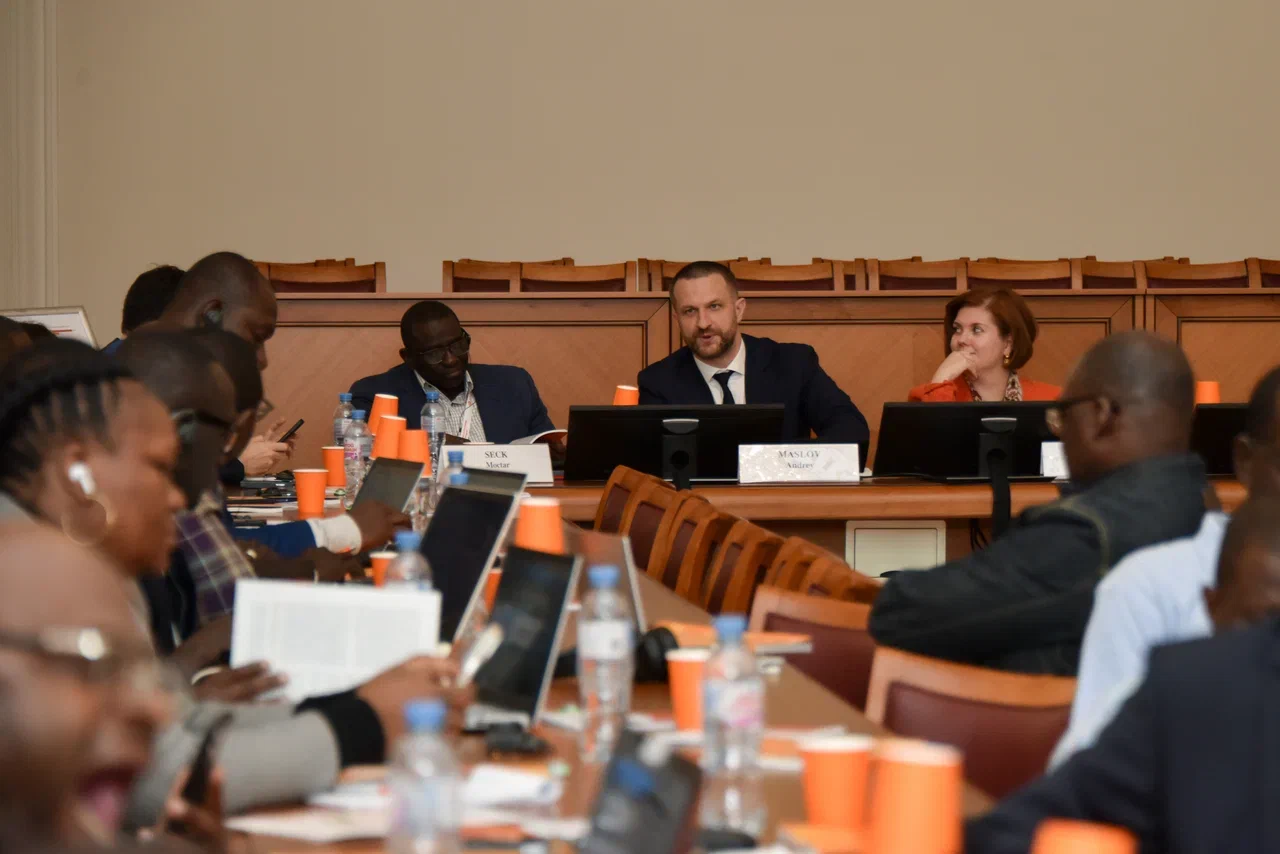
Mr. Collin Babirukamu, Director of E-government Services at the National IT Authority of Uganda, emphasized that for his country, and probably for Africa, the cost of Internet and the cost of devices remain major factors defining digitalization.
Concerning AI, Dr. Moctar Seck highlighted the utmost importance of this technology. He mentioned that the lack of regulation, planning, and infrastructure in the sector remain significant obstacles. He also shared information about the work conducted by the UNECA to elaborate the AI framework for Africa.
Participants expressed their interest in learning more about the Russian experience in e-governance and establishing a structured way of communication with the partner companies of the Program. Eng. Wubayehu Mamo Agonafir, Director of Abrehot Library, was interested in how Russia ensures that its projects are inclusive.
Moving the discussion forward, Mr. Nkundwe Mwasaga, Director General of the ICT Commission of Tanzania added that Russia’s experience in ensuring digital sovereignty is of interest for African countries. He emphasized the role of youth, which constitutes 60% of the African population in driving digitalization of the continent and the importance of achieving inclusivity for this demographic group. Thus, he suggested working on the development of the digital empowerment of youth strategy. He also stated the issue of the lack of AI infrastructure.
Mr. Mwasaga further suggested to develop an own digital governance (e-governance) index:
“I have a proposal: we need to develop our own digital governance index or e-government index. I think we have enough experts in this group and on the continent and in collaboration with Russia we will be able to release our own index every year. Index that is transparent and will be measured ourselves. I think we need to agree on the inclusive indicators. In the compass of many indexes in the world, we will have our own index. There are mechanisms on the continent that can be used to measure ourselves, for example, the African Peer Review mechanism.”
Andrey Maslov greatly appreciated the idea and, in response, suggested evaluating not the whole country and its e-governance system but rather separate digital solutions developed and implemented by Africans themselves. This would allow an understanding of the best practices available and indicate what solutions can be successfully multiplied across the continent.
In his turn, Mr. Bonheur Djerabe Djatto, Director of Information Systems of the Commission of the Economic Community of Central African States, stated the need to incorporate more information about assistance in e-governance development provided by regional organizations, such as the ECCAS, in the next edition of the handbook. He noted that the event should encourage cooperation between African countries themselves.
Wrapping up the event, Anastasia Likhacheva, Dean of the Faculty of World Economy and International Affairs of the HSE University, reiterated the team’s intention to continue the work and to publish the second edition of the handbook in collaboration with African counterparts. She expressed her hope that the book and the discussion will inspire both the participants and the organizers for further cooperation and initiatives, as well as provide ideas for the discussion at the foresight session on December 22.
The handbook is available online.

 search
search
